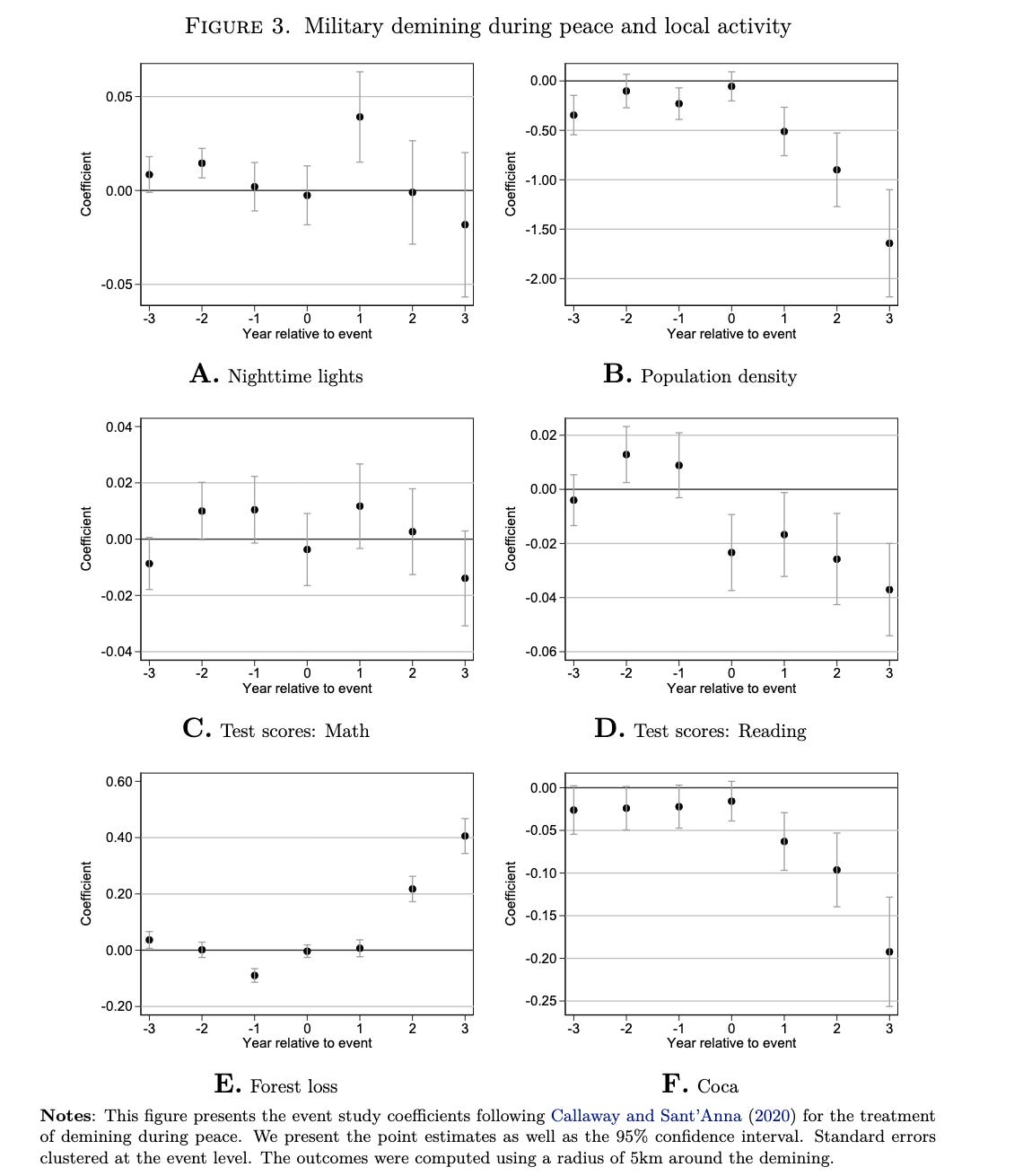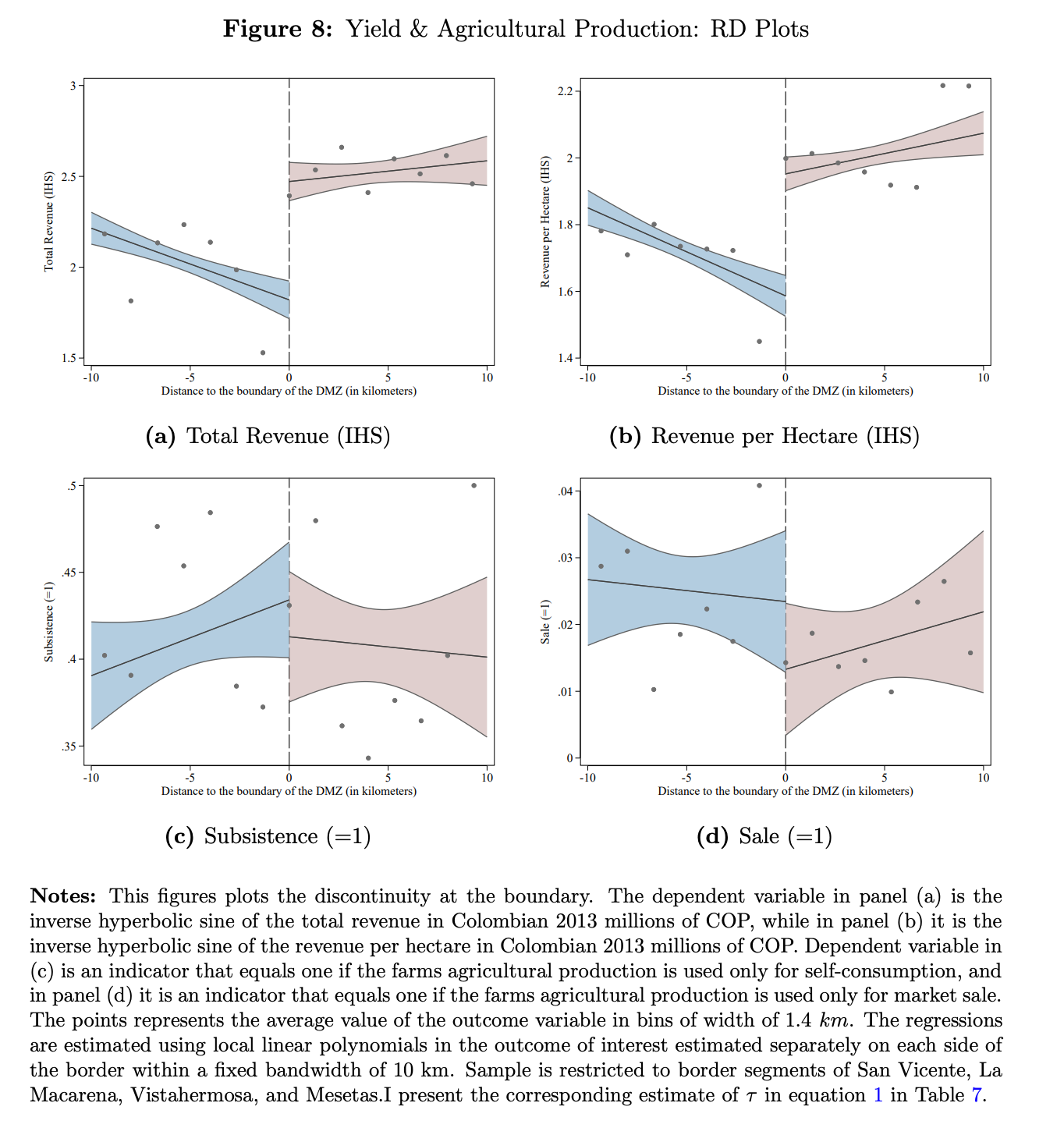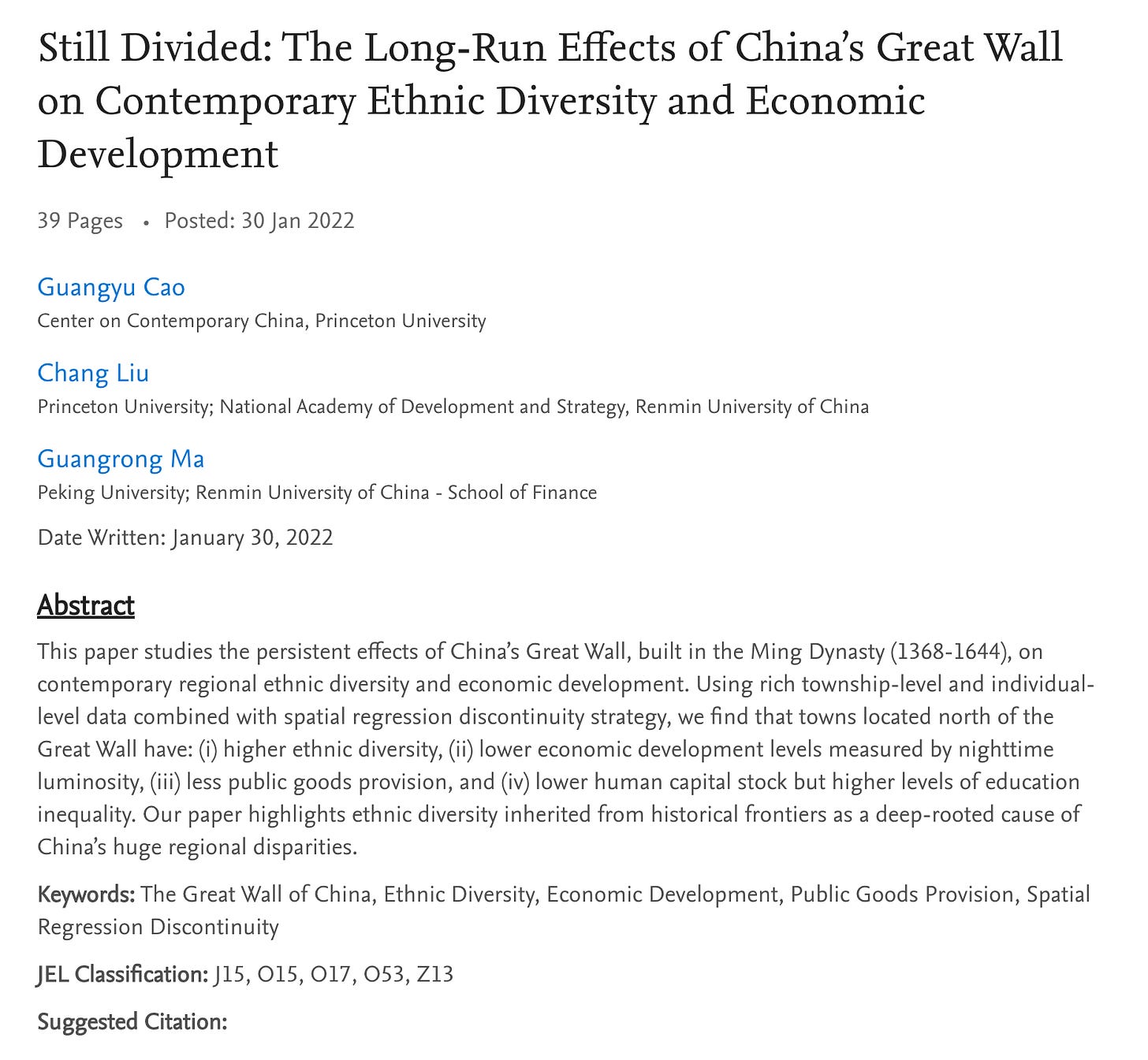Holbein's Social Science Roundup (Feb. 21, 2022)
8 studies the help make your reading list just a little less Americentric
In many ways, social science is very Americentric. I’m part of a team of researchers that’ll have a working paper out later this year (fingers crossed!) that quantifies just how Americentric social science is in terms of the quantity of research produced. However, another way to see Americentrism in social science is to note the patterns that scientists use when writing up their research.
Psychologists, for example, have documented that scholars studying the U.S. are more likely to omit the country that they are studying in their titles and abstracts, with this perhaps being reflective of scholars assuming that “the United States [is] especially reflective of humankind.”
So, in the next two Social Science Roundups, we’re going to celebrate new research outside of the United States.
Today’s roundup focuses on research on the effects of demining in Colombia, local dialects in China, the school to prison pipeline in Australia, and more. There’s so much cool stuff in this space!
Got a fascinating study in a non-American context? Or any other interesting research? Hit me up at holbein@virginia.edu.
This first one comes to us from Colombia and looks at the effects of demining campaigns:
What happens when countries engage in demining campaigns? It depends on when demining happens!
Demining after a conflict increases economic activity and improves students’ test scores. However (!), if demining happens during economic conflict, it leads to “exacerbate[s] extractive activities and promote[s] deforestation.”
Fascinating!
More research from Colombia on the effects of FARC rebel governance: “rebel governance [by the FARC] increased the years of education by 0.1 standard deviations, access to aqueduct systems by 11 percentage points, and agricultural yield by 16 percent.”
Check out this fascinating study on local dialects in China:
We now take you to a large garment factory in China…
“During the factory’s new-worker training program, [scientists] randomly pair[ed] trainers and trainees based on whether they [spoke] the same dialects.”
“[They] found that trainers voluntarily transfer[ed] more sewing techniques to trainees who [spoke] the same dialects, thus boosting their productivity relative to those who do not.”
This next paper takes us to just north of the Great Wall in China.
Did you know that “towns located [marginally] north of the Great Wall have: (i) higher ethnic diversity, (ii) lower economic development levels measured by nighttime luminosity, (iii) less public goods provision, and (iv) lower human capital stock but higher levels of education inequality”?
I didn’t!
See you next week!



















